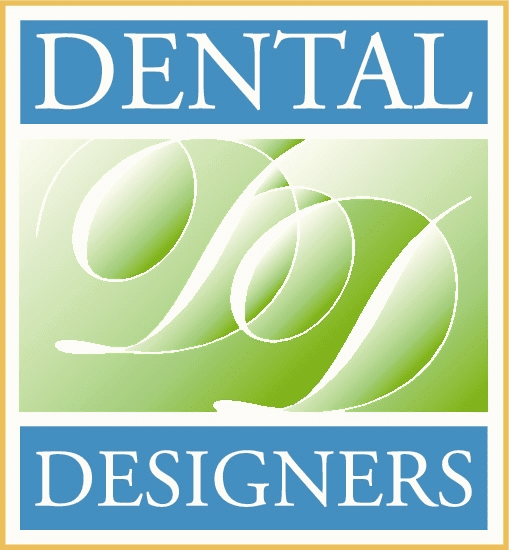What does My Dentist in Rockford Recommend if I have Sensitive Teeth?
Introduction
Sensitivity of teeth has been one of the common dental problems affecting millions of people across the globe. This condition has an abrupt onset of toothache sensitive to hot or cold and other stressors like brushing or eating sweets. Such malaise can significantly distort a person’s entire lifestyle, meaning one needs to know what leads to them.
Common Issue of Sensitive Teeth

The condition of sensitive teeth is caused by exposure to either the root dentin or the thinning off of the protective enamel that covers the tooth. Dentin has microscopic tubules that connect directly with nerve endings and expose them. Therefore, this helps in the transmission of outside stimuli, and they sensitivize.
This will discuss some of the most common reasons for sensitive teeth, including worn out or lost enamels, pulled away gums, cavities, etc. This way, readers will understand why sensitivity happens and value the importance of consulting professionals.
Importance of Seeking Professional Advice from a Dentist in Rockford
Many OTC products in the market claim to relieve people with teeth sensitivity. However, one should never forget that seeing a dentist will provide personalized treatment. This makes it possible for dentists in Rockford to determine the exact reasons for a particular tooth sensitivity in each case.
Professional advice becomes paramount for several reasons:
- Accurate Diagnosis: A dentist can perform an in-depth investigation into what may be causing the teeth sensitivity, whether it is enamel erosion, gum issues, or another dental problem. Accurate diagnosis, thus, is the foundation of proper therapy.
- Personalized Treatment Plans: Going to a dentist who can offer a customized treatment plan may be given depending on each patient’s requirements. In addition, it may recommend appropriate sensitizing toothpaste, fluoride treatment, and lifestyle modification to remedy the symptom.
- Preventive Strategies: Dentists may advise patients on preventative measures to prevent the continued sensitizing that could result in tooth enamel erosion and gum recession. This might entail teaching patients about oral hygiene measures and healthy diets.
- Comprehensive Oral Health: Apart from addressing sensitivity, dentists may also examine and deal with other oral healthcare problems during routine checkups and promote overall welfare.
Pursuing a dentist in Rockford for their assistance means a path to professional care that will allow those with painfully sensitive teeth to find long-term relief and better health in general. This gives a background to the later chapters that delve into the multiple elements involved in dealing with hypersensitivity.
Understanding Sensitive Teeth

Causes of Tooth Sensitivity
- Enamel Erosion: Eventually, acidic food and acid reflux destroy the enamel that protects the tooth. Furthermore, abrasive brushing also contributes to the loss of enamel. This gradually causes erosion, exposing the dentin, which contains micro-tubules conducing to the tooth’s nerve. Tooth sensitivity is also a great challenge that requires understanding enamel erosion as a basis for deciding on daily practices related to dental health and food options.
- Gum Recession: The tooth’s roots are exposed when the gums retreat due to vigorous brushing, gum disease, or aging. Unlike enamel, the root surface is not protected by any layers and becomes highly exposed to external influences. They are understanding why the gums retreat aids people in spotting the causative agents and protecting them from future susceptibility and recession.
- Cavities and Decay: Tooth decay and dental cavities affect the structure of the teeth and cause their sensitivity. Decay spreads over time and reaches the tooth’s nerve, resulting in pain. The case for the relationship between cavity and tooth sensitivity is incomplete, but it is essential to diagnose cavity early and conduct timely dental treatment to avoid additional problems.
Symptoms of Sensitive Teeth
- Sharp Pain: The main characteristic symptom of toothache is an unexpected, acute pain extending from the tooth towards different stimuli. Knowing what kind of pain this is, how much it hurts, and what exactly triggers it is crucial for those who wish to obtain a respite from their suffering. This section will consider various circumstances under which acute pain can occur for readers to have complete information about the symptoms.
- Discomfort with Hot or Cold Foods/Drinks: This is usually indicated by the sensitivity that arises mainly after eating or taking a hot or cold drink. People often remain in pain or have some pain long after encountering extreme temperatures. This provides an understanding of how temperature-sensitive processes are related to diets and, therefore, gives more power to readers to select their diets.
- Challenges with Brushing and Flossing: An oversensitive tooth makes it hard to clean his teeth because even a minor brush and flossing are painful. On the other hand, a person may need to keep consistent oral hygiene due to this situation, which will worsen dental problems. Discussing ways people can handle oral care with sensitive teeth emphasizes the need for soft tooth brushing methodologies, specially tailored oral hygiene tools, and consultancy services from a dental practitioner.
Why Consult Your Dentist in Rockford?
Significance of Professional Guidance
Professional dental problems, particularly tooth sensitivity, have to be addressed by an experienced dentist. While over-the-counter products may offer temporary relief, consulting a dentist in Rockford provides several advantages:
- Accurate Diagnosis: Dentists can recognize the exact reasons behind the tooth sensitivity. It includes an extensive evaluation, which could involve taking X-rays among more diagnosis procedures in search of conditions like enamel erosion, gum recession, or cavities.
- Personalized Treatment Plans: They can develop individualized treatment plans based on the requirements of every patient. Desensitizing toothpaste and treatment with fluoride or lifestyle change may also be recommended.
- Expertise in Advanced Techniques: Dental training is provided for dentists and modern medical approaches through high-tech treatment. They are experienced in providing the latest remedies and strategies for treating tooth sensitivity.
- Holistic Oral Health Approach: Dental care is considered oral health. Consulting a dentist helps individuals deal with teeth sensitivity and other problems related to oral health.
Importance of Early Detection and Intervention
- Preventing Further Damage: Since time is critical, detecting the underlying causes of tooth sensitivity will enable a prompt curative measure that saves the teeth and the gum. Catching issues such as enamel erosion, gum recession, or decay early may help prevent them from worsening.
- Preserving Tooth Structure: Prompt treatment is essential for maintaining the shape of the teeth. For example, prompt detection of enamel erosion may allow the implementation of protective means that strengthen the enamel and hinder other decays.
- Avoiding Complications: If one has untreated dental problems, they are predisposed to infection and, in extreme cases, a more complicated procedure. Dentists can use this time to administer measures that are not so invasive, thus lowering the risk that it may lead to further and intensive intervention.
- Improving Quality of Life: Quick therapy helps with pain and enhances a patient’s life. Addressing this matter in time guarantees people will have a pain-free mouth while carrying on with their lives.
What to Expect During a Dental Consultation
Initial Examination and Assessment
- Patient History: First, it involves the dental consultation, which commences with a detailed discussion of the medical and dental history of the patient. The dentist acquires knowledge of underlying conditions, previous dental treatments, and habits that could lead to tooth sensitivity.
- Symptom Evaluation: The dentist interrogates the patient in detail to discover its nature, how often it occurs, and specific triggering events of the sensitivity. It determines probable sources, which in turn guides the following investigation exercise.
- Oral Examination: The doctor examines the general condition of the teeth, gums, and other tissues using a thorough oral examination. During this visit, the dentist looks for symptoms like enamel erosion, gum recession, cavities, and other underlying dental problems associated with sensitive teeth.
Possible Diagnostic Tests
- X-rays: During an oral examination, x-rays may also be done, depending on the findings, to provide a clear vision of the teeth and underlying structures. This is particularly important in detecting dental problems like cavities and root defects, which may not be noticed during a regular dental checkup.
- Sensitivity Tests: It is possible to conduct specific tests that will assist in identifying the degree and causes of tooth sensitivity. The application of cold air or hot liquid can be used to test the reaction of teeth and detect hypersensitive sites.
- Periodontal Evaluation: Using a probe, the dentist assesses the state of the gums and identifies the presence of gingivitis or periodontitis. Gum health matters in a tooth-sensitive person because it leads to understanding the current condition of the gums.
- Dye Tests: The presence of dye can identify tooth decay or places where enamel is worn out. They also aid in detecting possible problematic areas, which serve as a crucial guide for treatment plans.
Open Communication with the Dentist
- Patient Input: During this interview, a dentist promotes the free flow of information between the dentist and the patient. In this regard, the healthcare worker will allow the patient to talk about any apprehensions, questions, and preferences that may arise during treatment. Obtaining patient contributions is essential when designing a tailored treatment program.
- Educational Discussion: As the patient discusses findings with the dentist, he is informed about what causes tooth sensitivity and some relevant facts. It also ensures the patient is well informed and participates actively in their dental health.
- Treatment Options: The dentist then informs the patient of possible alternatives for medical attention based on their examination and diagnostic findings. To this end, it can suggest unique oral care products, inside-office treatment procedures, or lifestyle adjustment recommendations for tooth sensitivity.
- Future Oral Health Plans: A dentist develops an ongoing plan to improve oral health with the patient. Such could be a timetable for repeated visits, preventive steps, and instructions on observing proper dental care at home.
Recommendations for Managing Sensitive Teeth

Personalized Treatment Plans
- Desensitizing Toothpaste Recommendations: The dentist may advise on some desensitizing toothpaste, for example, which relieves tooth hypersensitivity. Such toothpastes include potassium nitrate and strontium chloride, which inhibit the feeling along the dentin’s tubules from reaching the nerves. These toothpastes require the dentist’s advice regarding their appropriate use to obtain maximum results.
- Fluoride Treatments: Fluoride is a common mineral that builds up teeth strength. For instance, the dentist might recommend that patients with the condition get fluoride treatment. They include topical application with fluoride-enriched solutions, strengthening enamel’s ability against acid attacks.
- Lifestyle Adjustments (e.g., Dietary Changes): On this note, the dentist may recommend lifestyle modification, such as avoiding certain foods, for tooth sensitivity. Such measures may include changing one’s diet to reduce foods with high acidity or excess sugar. A balanced, tooth-friendly diet provides general dental well-being and minimizes hypersensitivity.
Importance of Regular Dental Checkups and Cleanings
- Preventive Care: Tooth sensitivity as a preventable problem can be addressed by emphasizing the importance of routine dental consultations and cleaning. Regular visits enable the doctor to track any changes in the mouth, spot early-stage problems, and provide timely prophylactic actions.
- Professional Cleanings: Plaque and calcified deposits are removed by professional teeth cleaning. These may also lead to painful teeth as well as gingival diseases. Additionally, polishing the teeth to achieve smoother surfaces and eliminating surface stains help make the oral environment healthier and less sensitive.
- Early Detection of Issues: Periodic appointment helps discover tooth problems that could lead to sensitivity, like cavities and gum disease. These problems are treatable in their early stages, and early interventions will avoid them.
- Customized Oral Care Plans: This enables the dentist to tailor an oral care program that specifies home care like brushing, flossing, and any other oral care products to be used daily according to the specificity of their oral health status.
- Monitoring Progress: The dentist can monitor if the suggested medicines or procedures are working by doing checkups regularly. It also ensures that the management plan meets individual’s changing dental care demands.
Conclusion
This journey starts by accepting that tooth sensitivity is a phenomenon experienced by many people and not just a few, as many may want to portray. Highlighting sensitivity as a unique entity and the cavity-unrelated trigger points gives individuals power over their dental treatment trajectory.
Early detection of various illnesses requires professional guidance, leading to efficient diagnostics, patient-specific treatment approaches, and prophylactic actions. The consultation process allows patients to express themselves and influence discussions regarding their dental care.
Practical management of SBS involves giving individualized treatment plans such as desensitizing toothpaste advice, fluoride treatment, and lifestyle alterations. This further emphasizes that homecare remains vital in preserving oral health and that choosing the right toothbrush and toothpaste, brushing correctly, and using a soft-bristled toothbrush are essential.
Finally, it should be noted that this comprehensive guide becomes more than just a helpful tool for patients with sensitive teeth; it is also a sign of the professionalism of Dental Designers in Rockford towards their clients.




